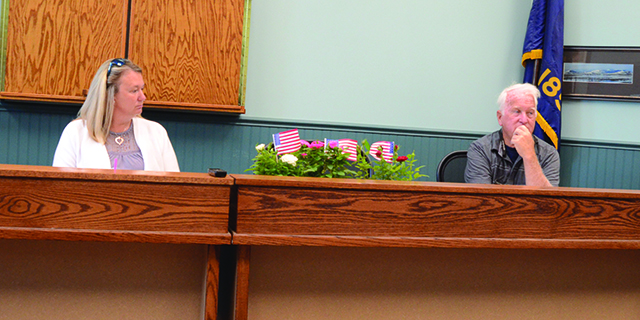Ag overtime bill is a win, not a victory
Published 6:30 am Wednesday, March 16, 2022

- {photoSource}East Oregonian{/photoSource}
Before even the first gavel dropped on the 2022 legislative session, I knew that one of the most consequential bills of my legislative career would be considered.
HB 4002, or the agriculture overtime bill, was a divisive bill from the start and presented the Oregon Legislature with two options. One that would favor one side to the detriment of the rest of Oregon, especially the agricultural economy. This is what I called a win — a win for a select few at the cost of the rest of us. The other path included compromise, good-faith negotiation and a bill that would generate support from both parties. This is what I called a victory — a victory for all of Oregon.
I worked hard to get a victory, not just a win on agriculture overtime. But the final result was a win — a win for Willamette Valley liberal special interests who donate money to the majority Democrats’ campaign funds.
It will make these groups feel good about themselves, but it won’t make Oregonians better off. HB 4002 will result in higher prices at the grocery store for working families, hours and pay capped for agricultural workers and ultimately the shuttering of small family farms that fill my district.
Agriculture is a unique industry. During harvest seasons, it requires long hours to reap all the crops before frost or rains come. In ranching, there is even more nuance.
The bottom line is that farmers and ranchers don’t set their own prices, they have to take whatever price the markets are offering. The Democrats advanced an argument about ag overtime that essentially stated that a bushel of wheat harvested in the 41st hour is worth 50% more than one harvested at the fifth hour. Anyone who has grown up around farms knows that that is not true. And requiring farmers to pay their workers as such will soon result in a dwindling number of family farms to even employ these workers.
HB 4002 leveled all these unique distinctions in agriculture and mandated a one-size-fits-all “solution” that is really no solution at all. The “olive-branches” that Democrats extended, the agricultural community never asked for. One example: Under this new overtime pay mandate, family farms will now be able to apply for tax credits to ease the burden of the new overtime pay mandate. Now taxpayers will be subsidizing this new program. Farmers and ranchers never asked for that, but the majority decided that is what would be best for them.
I worked hard to come to a compromise. Simple adjustments for seasonality, flexible scheduling and recognizing the difference between the kinds of agriculture would have helped. But the majority party rejected all these and charged ahead with what seemed to be a predetermined outcome, driven by their special-interest groups.
I know how much Oregon’s farmers and ranchers care about their employees and their families. HB 4002 will now force those farmers and ranchers to make difficult decisions about how much they can afford their employees to work. I grew up on these kinds of farms and I am afraid that under this policy, fewer and fewer of those farms will be around in the future.
Do you have a point you’d like to make or an issue you feel strongly about? Submit a letter to the editor or a guest column.









